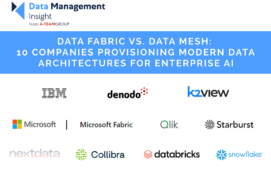Chris Brummer, a senior fellow at the Milken Institute, reckons the current manner in which Basel III is taking shape may conflict with rules being developed by the US Financial Stability Oversight Council (FSOC) regarding the criteria by which firms are categorised as “systemically important financial institutions” (SIFIs). FSOC, the European Financial Stability Board (FSB) and the Basel Committee on Banking Supervision (BCBS) have all recently been discussing SIFI designation guidelines, but Brummer highlighted the disconnect between the US and international regulation due to a lack of clarity.
Speaking at a conference held by his research institute in LA last week, Brummer said that due to this disconnect, a firm may receive the SIFI designation from Basel but not from the FSOC. Ergo it would be determined as systemically important by the global yardstick but not the US one and therefore would be subject to different levels of disclosure and transparency requirements, as well as different levels of direct risk management scrutiny and capital requirements.
Brummer highlighted the instance of a small hedge fund that is so interconnected to the rest of market that it could be determined as a SIFI by BCBS requirements. As noted by Reference Data Review last month, figures for non-banks (including hedge funds and corporates) that could fall under scrutiny by regulators have ranged from anywhere between a handful (fewer than 10) and a cartload.
This comment was set within the context of a discussion about the cross border challenges being faced by the regulatory community in light of the G20’s new “international agenda setting,” which has resulted in a high degree of “confusion” at the national level, said Brummer. A lack of a truly joined up approach to the global regulatory agenda could result in significant problems further down the line in terms of capital allocation and counterparty risk assessment. Regulatory arbitrage could be one such outcome.
Duncan Niederauer, CEO of NYSE Euronext, added that his own customers are facing a “wave of uncertainty” regarding regulatory change around risk management practices and capital management.
To be classified as a SIFI, according to FSOC, a firm should be engaged in financial activities of some sort and, under one proposal, have US$50 billion or more in total consolidated assets. However, the regulatory community is not limiting the classification to these criteria, judgements will also be made based on interconnectivity with regards to the rest of the financial market, ergo non-banks will be judged on the basis of the “extent and nature of the company’s transactions and relationships with other ‘significant’ non-bank financial companies and ‘significant’ bank holding companies,” according to the FSOC in its February draft paper on the subject. Vital criteria is lacking in these proposals to be able to determine whether the FSOC is on the same page as the BCBS.
The proposals are reflective of part 113 of the Dodd Frank Act, which gives the council the authority to require that a non-bank financial company be supervised by the Fed Board of Governors and be subject to enhanced prudential standards if FSOC determines that “material financial distress at such a firm, or the nature, scope, size, scale, concentration, interconnectedness, or mix of the activities of the firm, could pose a threat to the financial stability of the United States.”
FSOC is also working with the Office of Financial Research (OFR) on establishing a new legal entity identification standard for the market at large in order to facilitate this systemic risk tracking endeavour.
The video of the panel is available to view on the Milken Institute website.
Subscribe to our newsletter




